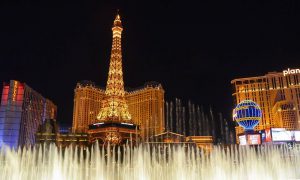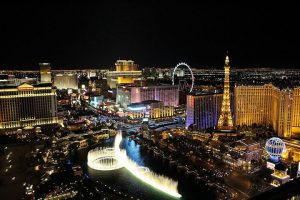The Japanese Integrated Resorts (IR) Association held its 3rd IR study session presenting the benefits of bringing IR to Japan. The theme of this session was ‘entertainment’ which is a vital part of IR. People tend to think that IR only entails a hotel that is incorporated with a casino, but that typically brings on negative outlooks associated with casinos and gambling in general. However, people fail to recognize that IR is a multifaceted experience that brings together entertainment facilities including casinos, large scale convention rooms, theme parks and attractions, luxury retail and fine dining, sporting complexes, and concert venues.

In this day in age, people long for valued experiences that create lifelong memories and evoke emotions that resonate within them beyond the initial occurrence. With the influence of emerging media and technology, the concept of an experience economy is becoming a basis for destination marketing and management, changing the way tourism is approached. Japan demonstrates a profound sense of pride and they worry that, with change, they will lose touch of traditions and practices that have been passed down through generations. However, based off my understanding of the presentation, IR will use entertainment and hospitality to showcase the Japanese culture which will, in turn, revitalize the regional economy, increase tourism, and create job opportunities. Japan already offers an array of shrines and temple where you will be able to witness and participate in Japan’s Shinto and Buddhist practices. It is no secret that Japan sits rightfully on the top of the average person’s bucket list of places to visit. Japan can capitalize on the worlds interest, by using art, entertainment, and hospitality to provide creative and immersive experiences that promote cultural engagements and visitor participation.
I personally decided to pursue a career in entertainment because I have been so heavily impacted by my past ventures in various music festivals throughout my youth. Being an advocate for arts and entertainment, I am ecstatic to know the world is also beginning to see the two industries as viable sources of revenue and assets in regional economic growth.
Japan can use IR to highlight the skills and crafts offered by its local communities. Japan is one of the most visited countries, however, those who visit Japan may only limit themselves to the confines of Tokyo, Kyoto, and Osaka. How can IR expose tourists to the overlooked local attractions scattered across Japan? Outside of the central cities there are many hidden gems, such as shrines, temples, mountains, forests, and places to eat that provide a more authentic experience of Japan. IR can use art and entertainment as a platform to educate tourists on Japanese lifestyle, culture, history, and language. The gained knowledge can spark interest in non-Japanese tourists, influencing their possible desire to dig deeper into Japan’s local communities.

In seeing the future of IR in Japan, officials can refer back to the successes of entertainment and hospitality in Las Vegas and the ways in which they implemented music, art, performing arts, gaming and sports. The international demand for the many attractions of Las Vegas has led to the creation of various multifaceted facilities that welcome all forms of public assembly and attract more tourism. Japan can also refer back to the success of the Wynwood Art District in Miami, Florida. This area is an oasis of art and music featuring local artists. Similar to Miami, Japan can feature local art, unique fashion trends, and music that can only be found within these particular places. IR can provide a platform for the talents found in these local communities and display their skills and crafts to attendees in the form of entertainment. Although the culture of Japan differs from that of Las Vegas and Miami, Japan can take full advantage and use IR as the platform needed to expose the world to the Japanese culture.

The Shochiku group provides an exemplary model of using art and entertainment to educate the world on Japanese culture and influence overseas engagement. In 2016 they hosted the Kabuki Lion Shi-Shi-O: The Adventure of the Mythical Lion performance at the MGM Grand Resort. This theatrical performance encompassed cutting edge technology, captivating video projections, stunning choreography, and an impressive spatial design. Shochiku was able to use this art form to attract visitors from all over the world while educating them on the Japanese culture. With the success of the Kabuki Lion and plans to create more immersive experiences, the Shochiku group will continue to play a crucial role in the future of Japan’s experience economy.

Japan’s culture is very rich and preserving its past and present highlights the vastness and beauty of its customs and people. However, IR may be an opportunity for new experiences without minimizing all that Japan already has to offer. There are many ways in which IR can help Japan take full advantage of this generation’s rising interest in social media, music festivals, technology, etc. IR can be a catalyst for shared interests creating worldwide communities that will attract increased tourism and provide an opportunity to expose a different kind of audience to all that Japan has to offer. Japan’s culture is captivating, and it should not be a matter of if, but how, Japan will create integrated resorts that showcase the richness and story of its people, customs, and land.
